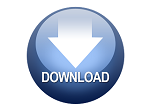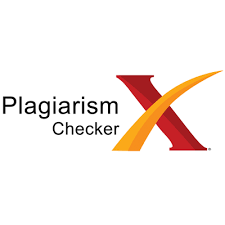The effectiveness of differentiated learning in Geography subject, anthroposphere material, for grade X at SMAN 4 Sidoarjo
Abstract
Students play a crucial role in the learning process at school, and creating a fun and engaging learning environment that can positively impact their interest and active participation. However, accommodating the diverse learning styles and needs of students can be a challenge for teachers. To address this, differentiated learning activities are considered appropriate, as they focus on meeting the individual needs of students and allow educators to respond effectively in the classroom. This study aims to assess the effectiveness of differentiated learning in improving the activity and learning outcomes of Grade X Geography students, specifically focusing on the Anthroposphere material at SMAN 4 Sidoarjo during the academic year 2022/2023. To investigate the effectiveness of differentiated learning, a one-shot case study experimental design was employed. The study involved 40 students and utilized the one-shot case study model. The results revealed that the implementation of differentiated learning effectively improved the activity and learning outcomes of Grade X-C Geography students in relation to the Anthroposphere material at SMAN 4 Sidoarjo during the academic year 2022/2023.
Keywords
Full Text:
PDFReferences
Al-Shehri, MS. (2020). Effect of Differentiated Instruction on The Achievement and Development of Critical Thinking Skills Among Sixth-Grade Science Students. International Journal of Learning, Teaching and Educational Research, 19 (10), 77-99. https://doi.org/10.26803/ijlter.19.10.5.
Anggraeny, TF., Dewi, DN. (2023). An Analysis of Teacher Strategies in Teaching English Using Differentiated Learning. EJI (English Journal of Indragiri): Studies in Education, Literature, and Linguistics, 7 (1), 129-146. https://doi.org/10.32520/eji.v7i1.2282.
Dalila, AA., Rahmah, S., Liliawati, W., Kaniawati, I. (2022). The Effect of Differentiated Learning in Problem Based Learning on Cognitive Learning Outcomes of High School Students. Jurnal Penelitian Pendidikan IPA, 8(4). 1820-1826. https://doi.org/10.29303/jppipa.v8i4.1839.
Gregory, GH., Chapman, CM. (2018). Differentiated Instructional Strategies: One Size Doesn′t Fit All. SAGE publication.
Hidayati, L., Sujarwati, I. (2023). The Differentiated Learning Strategy in Implementation Merdeka Belajar Curriculum to Improve Students’ Learning Outcomes of English Lesson in Elementary School. Cendikia: Media Jurnal Ilmiah Pendidikan, 13(5), 724-733.
Kamila, H.R., Cahyaningrum, S.E., & Sanjaya, I.G.M. (2023). Effectiveness of Differentiated Learning Materials Oriented Toward Nature of Science to Improve Scientific Literacy Skills. Jurnal Penelitian Pendidikan IPA, 9(4), 1968–1973. https://doi.org/10.29303/jppipa.v9i4.2995.
Liou, SR., Cheng, CY., Chu, TP., Chang, CH., Liu, HC. (2023). Effectiveness of Differentiated Instruction on Learning Outcomes and Learning Satisfaction in The Evidence-Based Nursing Course: Empirical Research Quantitative. Nursing Open, 10(10), 6794-6807. https://doi.org/10.1002/nop2.1926.
Magableh, ISI., Abdullah, A. (2020). The Effectiveness of Differentiated Instruction by Streaming: A Preliminary Study of Current Practices in the UAE. International Journal of Learning, Teaching and Educational Research, 19(6). 95-110. https://doi.org/10.26803/ijlter.19.6.6.
Marlina. (2020). Strategi Pembelajaran Berdiferensiasi di Sekolah Inklusif. Afifa Utama.
Nisa, Z., ‘Alaniah, AS., Adibah, DF., Putri, RKA., Asrohah, H., Zainiyati, HS. (2023). Differentiated Instruction to Improve Learning Effectiveness in a Disruptive Era. Jurnal Basicedu: Research & Learning in Elementary Education, 7(1), 1086–1094. https://doi.org/10.31004/basicedu.v7i1.4645.
Pudjiati, I., Utami, NCM., Fahrurrozi. (2023). Effectiveness of differentiated learning strategies in improving the writing skills poetry of students in elementary school. Jurnal Cakrawal Pendas, 9 (3), 420-429. http://dx.doi.org/10.31949/jcp.v9i3.5062.
Simanjuntak, SD., Tinambunan, R., Imelda., Sembiring, RK., Sitepu, I. (2023). Effectiveness of differentiation learning strategies in mathematics learning at junior high school. Edunesia: Jurnal Ilmiah Pendidikan, 4(1), 247-258. https://doi.org/10.51276/edu.v4i1.310.
Sitanggang, R., Ruslan, D., Yus, A. (2022). Effectiveness of Environment-Based Differentiated Learning Design to Improve Learning Outcomes of Elementary School Students. Jurnal Ilmiah Teunuleh: The International Journal of Social Sciences, 3(1), 69-77. https://doi.org/10.51612/teunuleh.v3i1.100.
Stefani, Y., Simanjuntak, RA., Petrus, I. (2023). Differentiated Learning Approach for Improving Report Ext Learning Outcomes for Tenth Graders. DIDASCEIN: Journal of English Education, 4(2). 83-96. https://doi.org/10.52333/djoee.v4i2.186.
Sugiyono. (2013). Metodelogi Penelitian Kuantitatif, Kualitatif dan R&D. ALFABETA.
Suprayogi, MN., Siregar, TS., Preston, M. (2023). The Effectiveness of Differentiated Instruction, Implementation in Indonesia Higher Education: A Literature Review. Conference of Education Research International (OCERI 2023). ASSEHR, 775, 374–389. http://dx.doi.org/10.2991/978-2-38476-108-1_37.
Tomlinson, CA. (2001). How To Differentiate Instruction in Mixed-Ability and Classrooms. 2nd Edition. ASCD publication.
Wiranti, N., Indahsari, RA., Rahmawati, SA., Stifani, Y., Mashar, R. (2023). Implementation of Differentiate Learning to Students with Types of Speech Delay Disorders. GENIUS: Indonesian Journal of Early Childhood Education, 4(1). 81-92. https://doi.org/10.35719/gns.v4i1.125.
Wulandari, E., Pangestika, R.R., Suyoto. (2023). Efektivitas Strategi Pembelajaran Berdiferensiasi terhadap Hasil Belajar Siswa pada Mata Pelajaran IPS Kelas IV SD Muhammadiyah Bayan. JIPDAS (Jurnal Ilmiah Pendidikan Dasar), 1(3), 74-82.
DOI: http://dx.doi.org/10.17977/um022v8i22023p95
Refbacks
- There are currently no refbacks.
Editorial and Administration Office:
This Journal is published by Prodi Pendidikan IPS, Fakultas Ilmu Sosial, Universitas Negeri Malang
Semarang St. No. 5 Building I3-102 65145.
Phone. (0341) 551312. line. 376 (19)
Homepage: http://journal2.um.ac.id/index.php/jtppips/index
email: jtp2ips.journal@um.ac.id
JTP2IPS INDEXED BY:
e-ISSN 2503-5347
ISSN 2503-1201
JTP2IPS is licensed by CC BY 4.0.

2.png)








